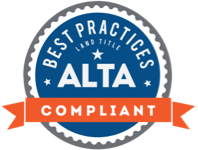Anyone who’s been in real estate for a while has seen it: last-minute scrambles that cause stress and delay closings. Sometimes closings are adjourned or, even worse, canceled.
When clients or professional partners hail from out of town or aren’t well-versed in New York real estate laws, rules, and customs, the potential for misunderstandings, mistakes, and delays is even greater.
There are several ways that professionals can make closings, whether residential or commercial, smoother and less stressful for clients. Based on our 16,000+ closings over the past 16 years, here are some key tips.
1. Double-check documentation
Many settlements have been delayed or derailed when the documentation is incorrect or incomplete. Something as simple as two numbers transposed on a tax ID number can halt the proceedings. It isn’t exciting, but having multiple sets of eyes look over every part of the pre-closing documentation can proactively solve a lot of issues. By law, the majority of settlement paperwork must be supplied to buyers and sellers before closing, leaving time to check and double-check. Cornerstone can review documents and flag items that appear unusual or deserve extra attention.
2. Don’t short-cut due diligence
Particularly for commercial real estate, delays often arise from legal disputes over property specifics, environmental issues, zoning problems, judgments, liens, covenants, and restrictions that impede clear title and a clear path to closing. For residential purchases, covenants and homeowners’ association rules can delay settlement or cause issues afterward. Cornerstone can be invaluable in researching title-related issues, even those from decades ago. We can also identify pending issues, such as judgments and open permits, or other unresolved items.
3. Be aware of financial discrepancies
Not only do professionals need to make sure that clients have financing in place, but they should also advise clients about financial activities after a loan has been approved (but before settlement occurs). Every lender has a story about how clients made a major purchase, such as buying a new vehicle, that changed debt ratios or other factors and resulted in the cancellation of the loan. Lenders have also discovered employment issues or inconsistencies in the sources of funds that have derailed a transaction.
4. Understand the Process
Professionals who are new to New York real estate may not be fully aware of who does what before, during, and after settlement. One wrinkle that surprises many is that most jurisdictions in New York do not accept electronic signatures for the recording of real documents. Even if portions of the transaction involve electronic signatures, original documents must be signed in ink (called “wet ink” signatures). Cornerstone can provide extensive guidance about the process to professionals who are assisting clients.
5. Understand New York Regulations
New York City presents unique challenges such as stricter zoning laws, more rigorous environmental regulations, and a higher likelihood of title disputes due to the historical complexity of properties. The intricacies of approvals and other agencies like the NYC Landmarks Preservation Commission can also hinder closings in ways not commonly seen in other regions. Cornerstone’s deep experience can help guide professionals and their clients through every aspect of the buying and selling process.
Cornerstone regularly schedules educational, networking, and social events for professionals, and is always available to answer questions and provide guidance or insights. By involving Cornerstone early in the buying process, many potential issues can be proactively identified and resolved to ensure a smoother closing.




